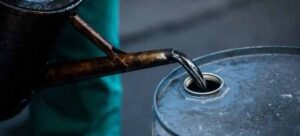The House of Representatives has decided to disband its current ad-hoc committee responsible for investigating the importation of bad fuel and other related energy issues. This committee, known as the Joint Downstream and Midstream Committee, was looking into why crude oil isn’t available for local refineries and other energy concerns.

The spokesperson for the House, Rep. Akin Rotimi, announced that the decision to dissolve this committee was made at its inauguration two weeks ago. He explained that a new committee will be set up to take over the investigation.
Rep. Rotimi stated, “The leadership of the House of Representatives has resolved to dissolve the current ad-hoc Joint Downstream and Midstream Committee. This committee, initially tasked with investigating the importation of adulterated petroleum products and other critical energy issues, will be replaced by a newly constituted ad-hoc committee with the same mandate.”
He added that the new committee will be composed of members chosen for their expertise, competence, and integrity to ensure an effective and independent investigation.
Earlier in the meeting, the Deputy Speaker, Benjamin Kalu, who spoke on behalf of the Speaker, Tajudeen Abbas, expressed worries about the return of long fuel lines at petrol stations and the rising cost of Premium Motor Spirit (PMS). He also highlighted the issue of crude oil not being available for domestic refineries.
Kalu emphasized that the investigation will cover other related issues affecting the sector. He stressed the importance of meeting global standards for the quality of petroleum products imported into Nigeria. He pointed out that the Nigerian Midstream and Downstream Petroleum Regulatory Authority (NMDPRA) and the Standards Organisation of Nigeria (SON) must ensure that all petrol brought into the country is thoroughly tested to meet standard sulfur and octane levels.
“It is unacceptable that the petrol imported into the country contains high sulfur levels, is leaded, and has low octane levels. This has previously led to socio-economic losses, including damage to vehicle engines,” Kalu stated.
He urged the new committee to investigate the quality and the number of laboratories used by NMDPRA and SON for their tests and to provide actionable feedback. Kalu emphasized the need for robust testing infrastructure to ensure the quality of petroleum products.
The former committee, led by Ikenga Ugochinyere, had been calling for the dismissal of the Group Chief Executive Officer of the Nigerian National Petroleum Company Ltd, Mele Kyari. However, another group of 50 lawmakers, led by Billy Osawaru from Edo State, argued against this move. They claimed that calling for Kyari’s dismissal during an ongoing investigation was contrary to parliamentary culture.
The House is committed to addressing these vital issues and ensuring thorough oversight. Details about the new committee’s operations will be provided soon.




